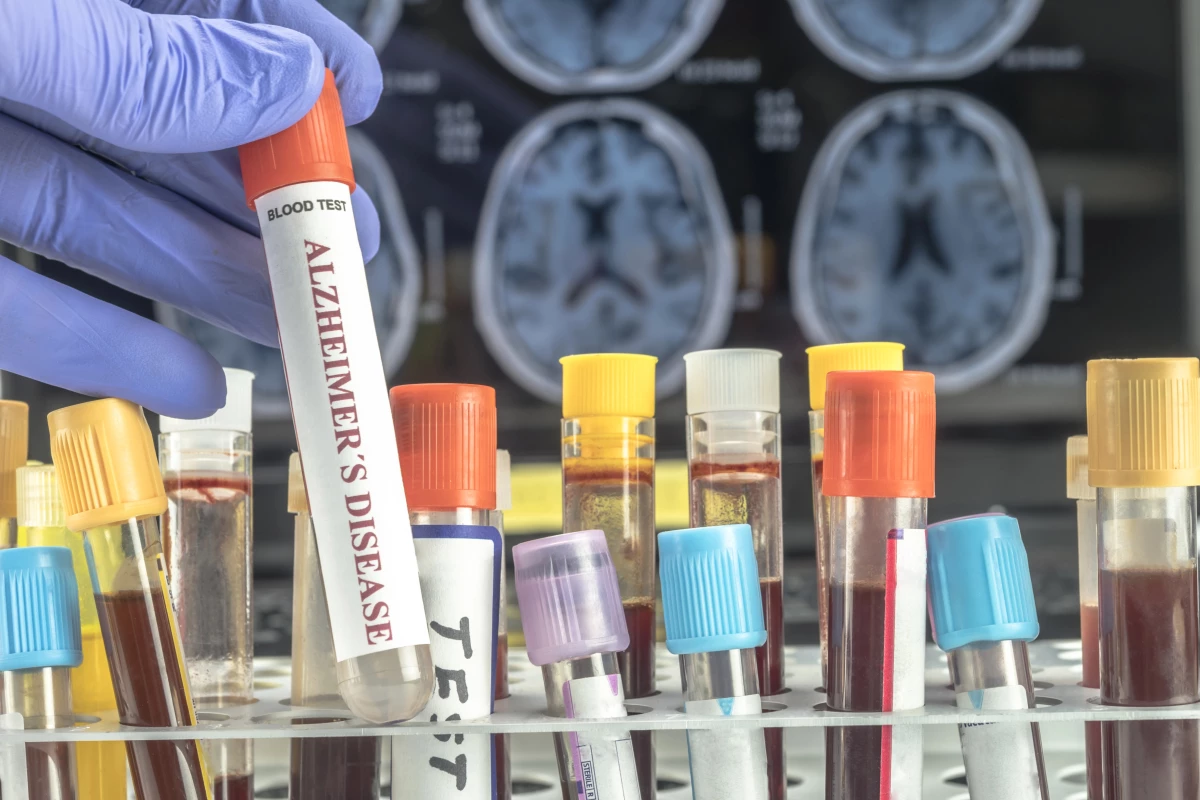The very first blood test for Alzheimer's disease detection has been green-lit by the US Food and Drug Administration (FDA), providing a simpler and less invasive method for early diagnosis and speedier intervention. It's a milestone moment for medical science.
While finding a cure remains elusive, we're edging closer to more impactful interventions that can slow cognitive decline. The blood test, known as the Lumipulse G pTau217/ß-Amyloid 1-42 Plasma Ratio screening, aims to identify the early accumulation of amyloid plaques in people aged 55 years or older, who show early signs of the disease.
“Alzheimer’s disease impacts too many people, more than breast cancer and prostate cancer combined,” said FDA Commissioner Martin A. Makary. “Knowing that 10% of people aged 65 and older have Alzheimer's, and that by 2050 that number is expected to double, I am hopeful that new medical products such as this one will help patients.”
While the scientific community has debated the significance of focusing on amyloid plaques, it's nonetheless one of the leading biomarkers of Alzheimer's disease (AD) progression. Traditionally, amyloid positron emission tomography (PET) brain scans have been used to identify their existence, but it's a costly, specialized process and has other downsides such a radiation exposure.
The Lumipulse G pTau217/ß-Amyloid 1-42 Plasma Ratio test, made by the Tokyo-based in-vitro diagnostics company Fujirebio Diagnostics, measures two proteins, pTau217 and β-amyloid 1-42, found in plasma. A numerical ratio from the results can then determine the presence of absence of plaques in the brain.
Besides PET scans, the only similar diagnostic tool involves cerebrospinal fluid (CSF) analysis, which requires challenging and invasive lumbar punctures, or spinal taps. The new blood test requires just a single sample, is quick to process and is expected to be more accessible than these other methods currently available.
The race to get blood tests to market has been under way for several years, which we have covered here, here and here, to name a few developments. But Fujirebio Diagnostics has crossed the line first. However, we don't expect it to be on its own for long. Scientists are also hoping to have testing available for those who show no symptoms.
“Nearly seven million Americans are living with Alzheimer's disease and this number is projected to rise to nearly 13 million,” said Center for Devices and Radiological Health Director Michelle Tarver in response to the FDA news. “Today’s clearance is an important step for Alzheimer’s disease diagnosis, making it easier and potentially more accessible for US patients earlier in the disease.”
The approval comes after a clinical trial that saw 91.7% of positive tests using the Lumipulse G pTau217/ß-Amyloid 1-42 Plasma Ratio screening method revealing the presence of amyloid plaques, confirmed by PET or CSF test. And 97.3% of those who returned negative results via the blood test, were also cleared through further investigation.
While not 100% foolproof, there were no other health risks identified besides a small chance of false positive/false negative results. However, the FDA states that the Lumipulse test is not intended to be used as a stand-alone diagnostic tool but used as part of the process that reduces the frontline use of more invasive and time-consuming methods of detection.
“The lack of effective, accessible and minimally invasive diagnostics for AD contributes to its late diagnosis and inadequate treatment,” says Monte Wiltse, President and CEO at Fujirebio Diagnostics. “The Lumipulse G pTau 217/ β-Amyloid 1-42 Plasma Ratio test will go a long way to assist physicians and patients to obtain an AD diagnosis in early stages of the disease, when interventions are more effective.
"As part of our worldwide commitment to improve the diagnosis and treatment of AD, Fujirebio is developing additional assays, which will increase the availability of diagnostic tools and expand the foundation for early, more effective treatment," Wiltse added.
Source: FDA





